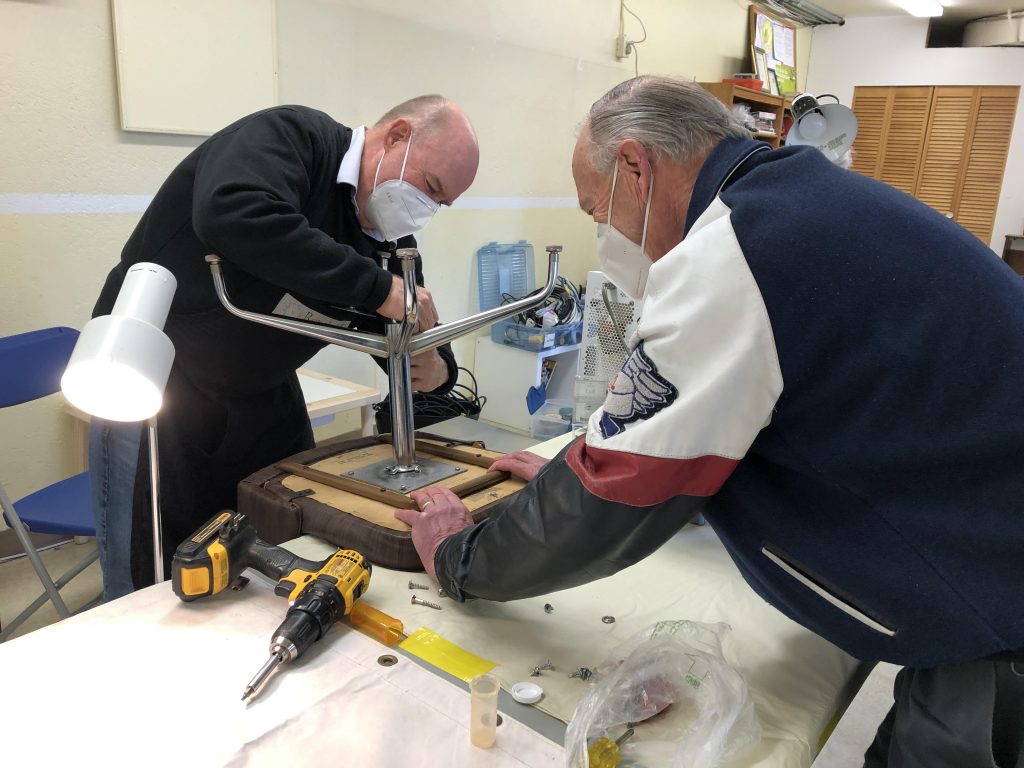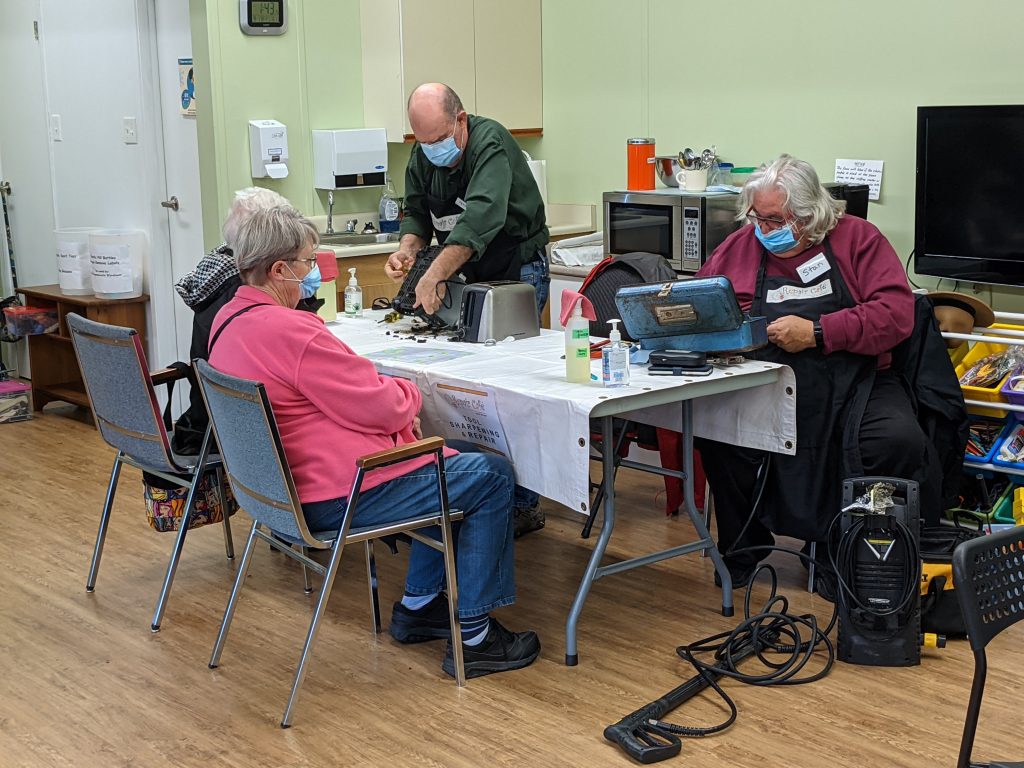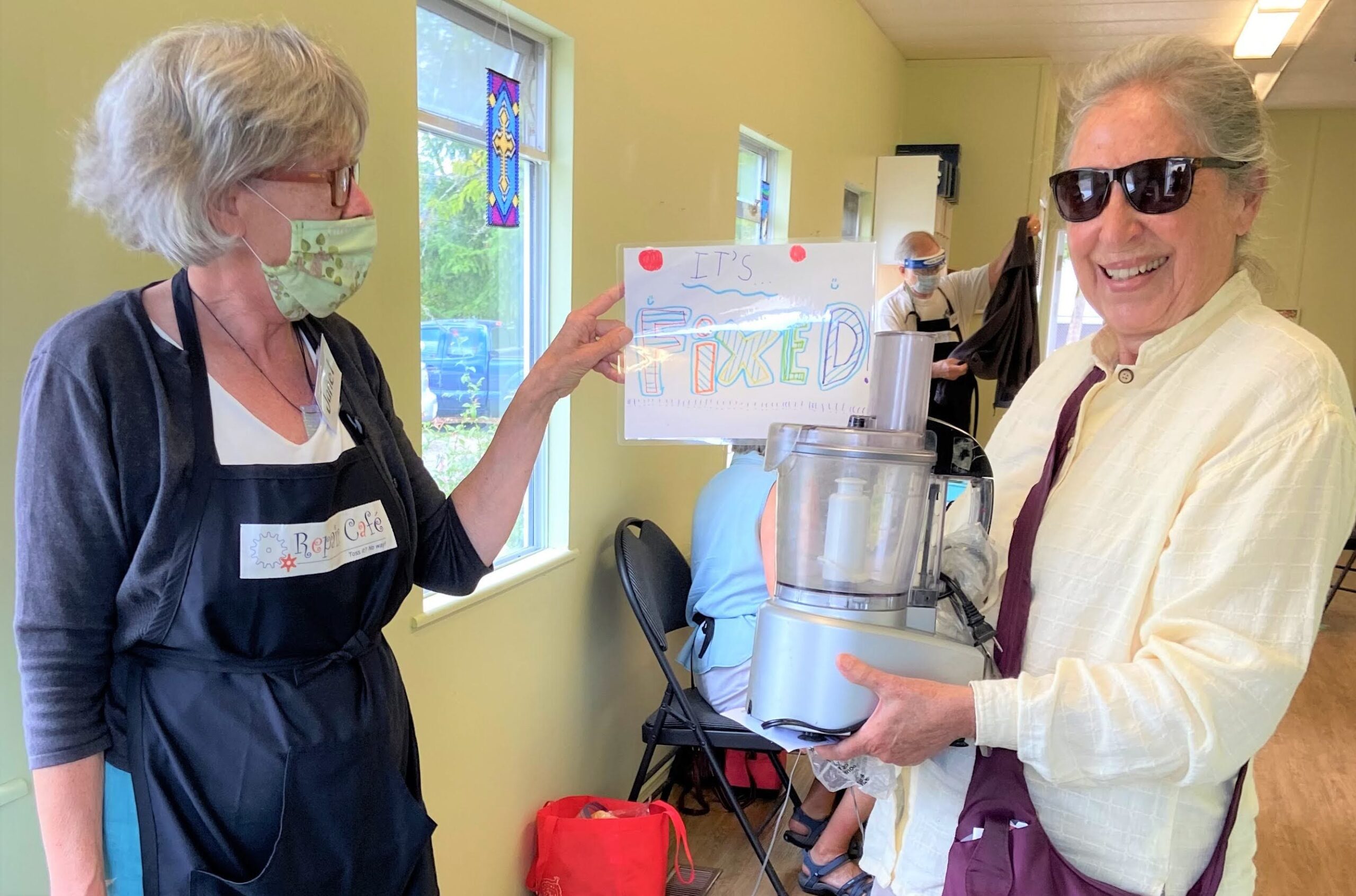With COVID restrictions lifting across the country, many community groups have been looking forward to meeting in-person once again, including Repair Café North Saanich. On Saturday, March 19, the B.C. repair clinic was open for the first time since the fall. Visitors brought their broken items to St. John’s United to be fixed by expert volunteers.
Nearly 200 items have been repaired since the events started in 2020. “When you think of the volume of stuff that represents that isn’t going into the landfill, that’s pretty significant,” says organizer Marlyn Davis.
Services on offer include everything from electrical repair to a gluing station. A wool expert helps mend sweaters and other articles of clothing. Volunteers offer computer troubleshooting and knife and tool sharpening. One person also has a 3D printer, which he has used to print missing parts for lawn chairs and food processors. “People get so excited about having something… fixed and useful again,” Davis says.
The volunteers also talk people through how to do their own repairs and visitors can see how easy it can be once they have the skills. “Especially something as simple as a lamp — and I use that example because we get quite a few lamps,” says volunteer Stan Zornes. “Maybe they didn’t realize it’s just this little switch on top that is just a matter of three screws and you’ve got it replaced or feeding a wire through and putting a plug on.”
The café in North Saanich, which is just north of Victoria, is one of more than 2,200 around the world. Repair Cafés started in Amsterdam in 2009 to encourage sustainability and teach repair skills, which have largely been lost. While the vast majority of these repair clinics are held in western Europe, there are several across Canada. They are becoming more popular in tandem with right-to-repair laws, which aim to require companies to provide access to tools, parts and repair services so customers can fix broken products instead of tossing them out.

A self-described “zero-waste freak,” Davis says there is additional interest in her area in reducing waste because of the proposed expansion of the local Hartland Landfill. More than 140,000 tonnes of trash are dumped there every year, and while the regional district government says it’s working on waste diversion strategies, the dump will soon run out of room.
More on Broadview:
- Which type of milk packaging is best for the environment?
- As more U.S. states legalize composting humans, some Catholics aren’t digging it
- The fix for more sustainable and livable cities starts with your garden
“In [expanding], they would be clearcutting a natural area and people are really quite upset,” Davis says. “So it’s motivating people to be more aware, but also to take action and to keep things out of the landfill.”
While Davis’s interest is more environmental, Zornes just loves tinkering, and he appreciates the chance to use his skills to help people. “I always liked fixing things,” says the retired chef. “If something breaks, it just bothers me to have to go out and buy it brand new again.”

Davis is hoping everyone who stops in at the café will be just as bothered by Zornes about throwing things away. “It may look like a drop in the bucket in terms of how effective we are, but as a worldwide movement, encouraging people [to not] just toss [something] away and replace it, [repair cafés] will have significant impact,” Davis says.
The next event is scheduled for April 16 at St. John’s United from 11 a.m. to 2 p.m. Pacific time.
***
Emma Prestwich is Broadview’s digital editor.
















Fixing things is more difficult in a throw-away society. We used to repair TVs, radios, replace cords on kettles and toasters, fix-up old bicycles and repair damaged furniture. I loved getting my hands dirty trying to repair something. And if I didn’t have a proper tool…I made one. But today, we toss things out and purchase new. On graduating from Emmanuel College and going to my first pastoral charge I had many things including a roll-away bed that I had picked up off the street in Toronto that enabled me to get started in ministry. Some people just throw away completely good stuff. Not only does repairing something make it last longer it gives the one who fixed it a sense of accomplishment. And if they can pass it on to someone who needs it then there is another blessing. I currently have a computer that I have to dispose of soon because it can no longer be updated. Nothing wrong with it but these things are designed to be thrown away. Sad situation but then it seems that people, like things when they have outlived their usefulness, also get thrown away.